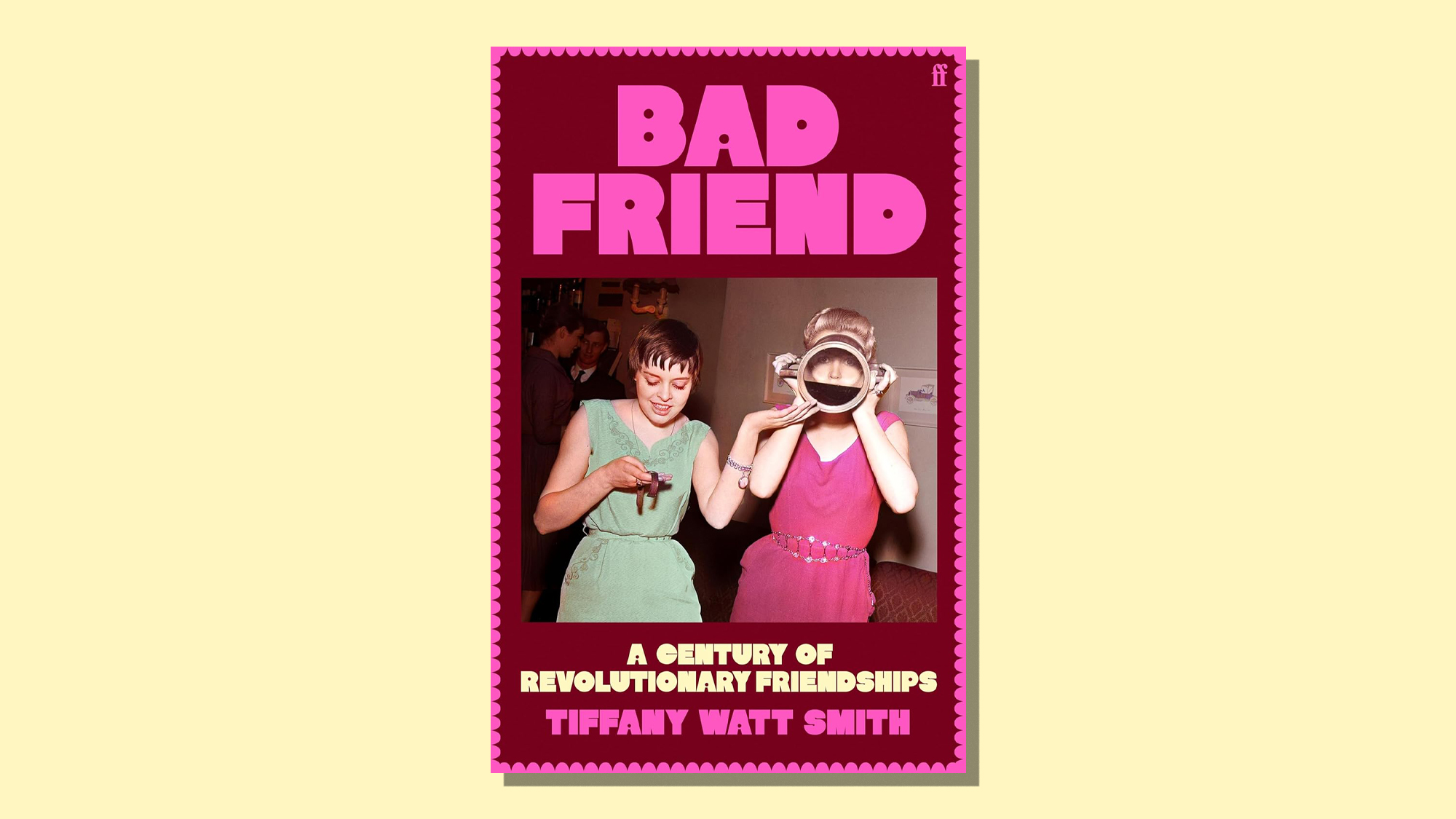Bad Friend: Tiffany Watt Smith explores why women abandon friendships
A 'deeply researched' account of female friendship through history

A free daily email with the biggest news stories of the day – and the best features from TheWeek.com
You are now subscribed
Your newsletter sign-up was successful
For much of human history, said Erica Wagner in the FT, friendship has been regarded as a male preserve. "Perfect friendship," Aristotle wrote, "is the friendship of men who are good and alike in virtue." For the 17th century poet Margaret Cavendish, women's brains were "simply too weak" to support the "complex bonds" of friendship. In this "thought-provoking, open-hearted" cultural history, Tiffany Watt Smith explores how this situation has changed.
Nowadays, while men are castigated for their lack of emotional articulacy, female friendship is a "kind of cultural ideal". And by the late 20th century, being likeable and popular had become part of the conventional feminine paradigm, said Eleanor Halls in The Daily Telegraph. With this came various tropes: the "girl crush", the "popular" girl (a staple of 1990s romcoms), and the "bad friend", who "eschews sisterhood to pursue her individual ambition". All this, Watt Smith suggests, has created unrealistic expectations – meaning female friendship is "more fraught than ever".
Watt Smith fleshes out her "deeply researched" account with descriptions of how she fell out with her best friend Sofia, said Kitty Drake in The Guardian. The cause, she admits, was largely her own jealousy at feeling "left behind" when Sofia started a family. But she also blames the societal expectation that female friendship should be "frictionless": this, she says, often drives women to abandon a friendship when "they feel jealous or hurt".
The Week
Escape your echo chamber. Get the facts behind the news, plus analysis from multiple perspectives.

Sign up for The Week's Free Newsletters
From our morning news briefing to a weekly Good News Newsletter, get the best of The Week delivered directly to your inbox.
From our morning news briefing to a weekly Good News Newsletter, get the best of The Week delivered directly to your inbox.
"Bad Friend" is a "knotty" and rather "poorly organised" book, but its "moral is a good one", said Ceci Browning in The Times. Watt Smith advises us to ditch the "grand fantasy", to stop proclaiming our friends either "amazing" or "terrible". With friendship, she wisely concludes: "The flawed experiment teaches us more."
Available at The Week Bookshop
A free daily email with the biggest news stories of the day – and the best features from TheWeek.com
-
 How the FCC’s ‘equal time’ rule works
How the FCC’s ‘equal time’ rule worksIn the Spotlight The law is at the heart of the Colbert-CBS conflict
-
 What is the endgame in the DHS shutdown?
What is the endgame in the DHS shutdown?Today’s Big Question Democrats want to rein in ICE’s immigration crackdown
-
 ‘Poor time management isn’t just an inconvenience’
‘Poor time management isn’t just an inconvenience’Instant Opinion Opinion, comment and editorials of the day
-
 Bad Bunny’s Super Bowl: A win for unity
Bad Bunny’s Super Bowl: A win for unityFeature The global superstar's halftime show was a celebration for everyone to enjoy
-
 Book reviews: ‘Bonfire of the Murdochs’ and ‘The Typewriter and the Guillotine’
Book reviews: ‘Bonfire of the Murdochs’ and ‘The Typewriter and the Guillotine’Feature New insights into the Murdoch family’s turmoil and a renowned journalist’s time in pre-World War II Paris
-
 6 exquisite homes with vast acreage
6 exquisite homes with vast acreageFeature Featuring an off-the-grid contemporary home in New Mexico and lakefront farmhouse in Massachusetts
-
 Film reviews: ‘Wuthering Heights,’ ‘Good Luck, Have Fun, Don’t Die,’ and ‘Sirat’
Film reviews: ‘Wuthering Heights,’ ‘Good Luck, Have Fun, Don’t Die,’ and ‘Sirat’Feature An inconvenient love torments a would-be couple, a gonzo time traveler seeks to save humanity from AI, and a father’s desperate search goes deeply sideways
-
 A thrilling foodie city in northern Japan
A thrilling foodie city in northern JapanThe Week Recommends The food scene here is ‘unspoilt’ and ‘fun’
-
 Tourangelle-style pork with prunes recipe
Tourangelle-style pork with prunes recipeThe Week Recommends This traditional, rustic dish is a French classic
-
 Samurai: a ‘blockbuster’ display of Japan’s legendary warriors
Samurai: a ‘blockbuster’ display of Japan’s legendary warriorsThe Week Recommends British Museum show offers a ‘scintillating journey’ through ‘a world of gore, power and artistic beauty’
-
 BMW iX3: a ‘revolution’ for the German car brand
BMW iX3: a ‘revolution’ for the German car brandThe Week Recommends The electric SUV promises a ‘great balance between ride comfort and driving fun’